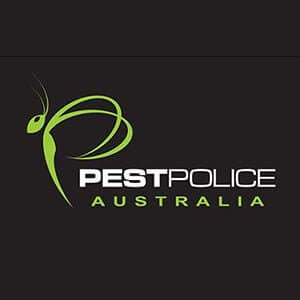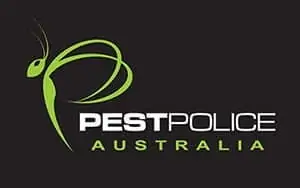Summer is the most popular season of the year, but unfortunately, it is also the prime time for pests to invade our homes. Pests like mosquitoes, ants, flies, ticks, and other insects thrive during summer and can become a nuisance if left unchecked. Implementing pest prevention strategies is essential to protect your home and family from these pests. Here are some strategies to keep pests at bay during summer:
Identify Common Summer Pests
Identifying common summer pests is essential for effective pest control. Here are some tips on recognising common summer pests:
- Ants – Ants are small insects with segmented bodies and elbowed antennae. They are often seen in trails, especially around sources of food. Ants are attracted to sweet and sugary substances, making them common kitchen pests during the summer.
- Mosquitoes – Mosquitoes are slender insects with long legs and a proboscis for feeding on blood. Active during dawn and dusk, female mosquitoes seek blood for reproduction, while males feed on nectar. They are notorious for their itchy bites and can be a nuisance during warm summer evenings.
- Flies – Flies, characterised by two wings and large compound eyes, are attracted to decaying organic matter and food. House flies, fruit flies and horse flies are prevalent during the summer months. They can be found around garbage, food, and outdoor spaces.
- Bees and Wasps – Bees, with hairy bodies, and wasps, with smoother bodies, both have two pairs of wings. While bees play a crucial role in pollination, wasps can be more aggressive. Nests are commonly found in eaves, trees, or bushes, posing a potential threat when disturbed.
- Ticks – Ticks are small arachnids found in grassy areas, attaching themselves to hosts, including humans and pets. They have a flattened oval body when engorged with blood. Ticks can transmit diseases, making it essential to be vigilant, especially during outdoor activities.
- Fleas – Fleas are tiny, wingless insects that infest pets and homes. They have laterally compressed bodies adapted for moving through fur. Detecting small, dark specks on pet fur or in carpets indicates a flea infestation, which requires prompt attention.
- Cockroaches – Cockroaches, characterised by flat, oval-shaped bodies and long antennae, thrive in warm environments. They are often found in kitchens and bathrooms. Evidence of cockroach infestations includes droppings, egg cases, and a distinct musty odour.
- Spiders – Spiders, with eight legs and two body segments, come in various sizes and colours. While most spiders are beneficial, some, like the black widow or brown recluse, can be harmful. Web-building spiders leave silk webs, while others may be found in hidden nests.
- Moths – Moths have scaled wings and feathery antennae. Some species can be pests in homes, causing damage to clothing and pantry items. Detecting larvae, cocoons, or fabric damage can indicate the presence of moths, necessitating pest control measures.
- Grasshoppers – Grasshoppers, recognised by their strong hind legs for jumping and long antennae, feed on plants and can be a nuisance in gardens. Signs of grasshopper presence include chewed leaves and their distinctive jumping behaviour. Monitoring gardens is crucial for preventing extensive damage to crops.
Regular inspection of your home, yard, and surroundings can help you identify and address pest problems before they become severe. If you’re unsure about a particular pest or need assistance, consider consulting with a pest control professional.
Assess The Risks in Your Home
Assessing the risks of pest infestation in your home during the summer is an important step in preventing and addressing potential pest problems. Here are some steps you can take to assess these risks:
- Conduct regular inspections: Regularly inspect your home, both indoors and outdoors, to identify any signs of pest activity. Look for droppings, gnaw marks, nests, or any other indications of pests.
- Identify potential entry points: Inspect the exterior of your home for any gaps, cracks, or openings that pests could use to enter. Seal these entry points to prevent pests from getting inside.
- Check for standing water: Mosquitoes and other pests are attracted to standing water, so it’s important to eliminate any sources of stagnant water around your home. Check for clogged gutters, leaky faucets, or containers that collect water, and take appropriate measures to remove or address them.
- Maintain a clean environment: Keeping your home clean and clutter-free can help reduce the risk of pest infestations. Regularly vacuum, sweep, and mop floors, wipe down countertops, and store food securely to eliminate potential food sources for pests.
- Manage outdoor vegetation: Trim back any overgrown vegetation and keep it away from the exterior of your home. This can help prevent pests from using branches or leaves as bridges to gain access to your home.
- Monitor and address pest activity promptly: If you notice any signs of pest infestation, such as droppings or visible pests, it’s essential to take prompt action. Consult with a professional pest control service to identify the pest and determine the most effective treatment plan.
By following these steps and being proactive in addressing potential pest issues, you can assess and mitigate the risks of pest infestation in your home during the summer.
Apply Pest Prevention Strategies
Applying pest prevention strategies in your home during the summer is crucial to keep your living environment pest-free. Here are some effective strategies you can implement:
- Seal entry points: Inspect and seal any gaps, cracks, or openings in your home’s exterior, including doors, windows, foundation, and utility pipes. This will prevent pests from entering your home.
- Clean and declutter: Regularly clean your home, paying attention to areas that are often overlooked, like behind appliances and furniture. Decluttering your home will remove hiding places for pests and make it easier to spot any signs of infestation.
- Store food properly: Keep all food, including pet food, stored in airtight containers to prevent pests from being attracted to them. Avoid leaving food out for long periods, and clean up any spills or crumbs promptly.
- Maintain good hygiene: Good sanitation practices can significantly reduce the risk of pest infestation. Clean up spills immediately, take out the garbage regularly, and ensure that trash cans have tight-fitting lids.
- Trim vegetation and landscape wisely: Trim back tree branches, shrubs, and other plants that touch or hang close to your home, as they can serve as pathways for pests. Also, keep your yard clear of debris, tall weeds, and overgrown grass, which can attract pests.
- Address moisture issues: Moisture attracts pests, so address any leaks, plumbing issues, or standing water problems in and around your home. Repair leaky pipes, clean clogged gutters, and ensure proper drainage on your property.
- Install screens: Fit windows and doors with screens to prevent flying insects and pests from entering your home when they are open.
- Consult with a professional pest control service: Consider hiring a professional pest control service to inspect your home regularly and provide targeted treatments to prevent and control pests. They can also offer valuable advice and recommendations for ongoing pest prevention.
Implementing these pest prevention strategies in your home during the summer will help reduce the risk of infestation and maintain a pest-free living environment.
Explore Natural Remedies for Safe Pest Control
Here are some natural remedies for safe pest control that you can use in your home during summer:
- Use coffee grounds: Spread coffee grounds around the outside of your home in areas where you think pests may be coming in. Many critters dislike the smell of coffee grounds and will avoid them.
- Citrus spray: Spiders are not fond of citrus. Create a spray by mixing water with unsweetened lemon or lime juice. Use the mixture to wipe your countertops or spray doorways and windowsills to deter spiders.
- Peppermint oil for ants: Create a natural ant deterrent by combining 1/4 cup of purified water, 1/4 cup of vodka, 15 drops of peppermint oil, 15 drops of tea tree oil, and either 7 drops of citrus oil or 1-3 drops of clove oil. Spray this mixture in areas where you have seen ants.
- Vinegar solution for fruit flies: Fruit flies can be a common problem during summer. Fill a bowl with apple cider vinegar and a few drops of dish soap. Cover the bowl with plastic wrap and poke small holes in it. The fruit flies will be attracted to the vinegar and get trapped when they try to reach it.
Hire Professional Pest Control Services
Hiring professional pest control services like Pest Police can be beneficial for several reasons:
- Expertise and knowledge: Professional pest control technicians have extensive knowledge and training in identifying different pests, their behaviour, and the most effective methods to eliminate them. They can assess your specific pest problem and develop a customised treatment plan.
- Targeted treatments: Professionals can access various pest control products and techniques for different pests. They can use targeted treatments that effectively eliminate pests while minimising potential harm to humans, pets, and the environment.
- Safety: Pest control treatments often involve chemicals that can be hazardous if not handled properly. Professional pest control technicians are trained in the safe and responsible use of these chemicals. They know how to apply treatments safely, minimising any risks to you and your family.
- Cost-effectiveness: While the initial cost of hiring professional pest control services may seem higher than DIY methods, it can be more cost-effective in the long run. Professionals can effectively eliminate pests and prevent future infestations, saving you from potentially costly damage caused by pests.
- Time and convenience: Pest control can be time-consuming, requiring multiple treatments and follow-ups. Hiring professionals saves you the hassle of researching, purchasing, and applying different products yourself. They can handle all aspects of pest control, allowing you to focus on other priorities.
- Prevention and long-term solutions: Professional pest control services eliminate existing pests and provide preventive measures to stop future infestations. They can identify vulnerabilities in your home that may attract pests and recommend structural modifications or maintenance practices to reduce the risk of future infestations.
- Guaranteed results: Many professional pest control companies offer guarantees or warranties on their services. This means that if the pests return within a specified period after treatment, they will return to re-treat the area without an additional charge.
Hiring professional pest control services like Pest Police ensures that your pest problems are handled efficiently, safely, and effectively, ultimately providing you with peace of mind and a pest-free living environment.
Contact us today for professional and effective pest control services. Say goodbye to pests and enjoy a pest-free home. Don’t let pests take over; let Pest Police be your solution!

